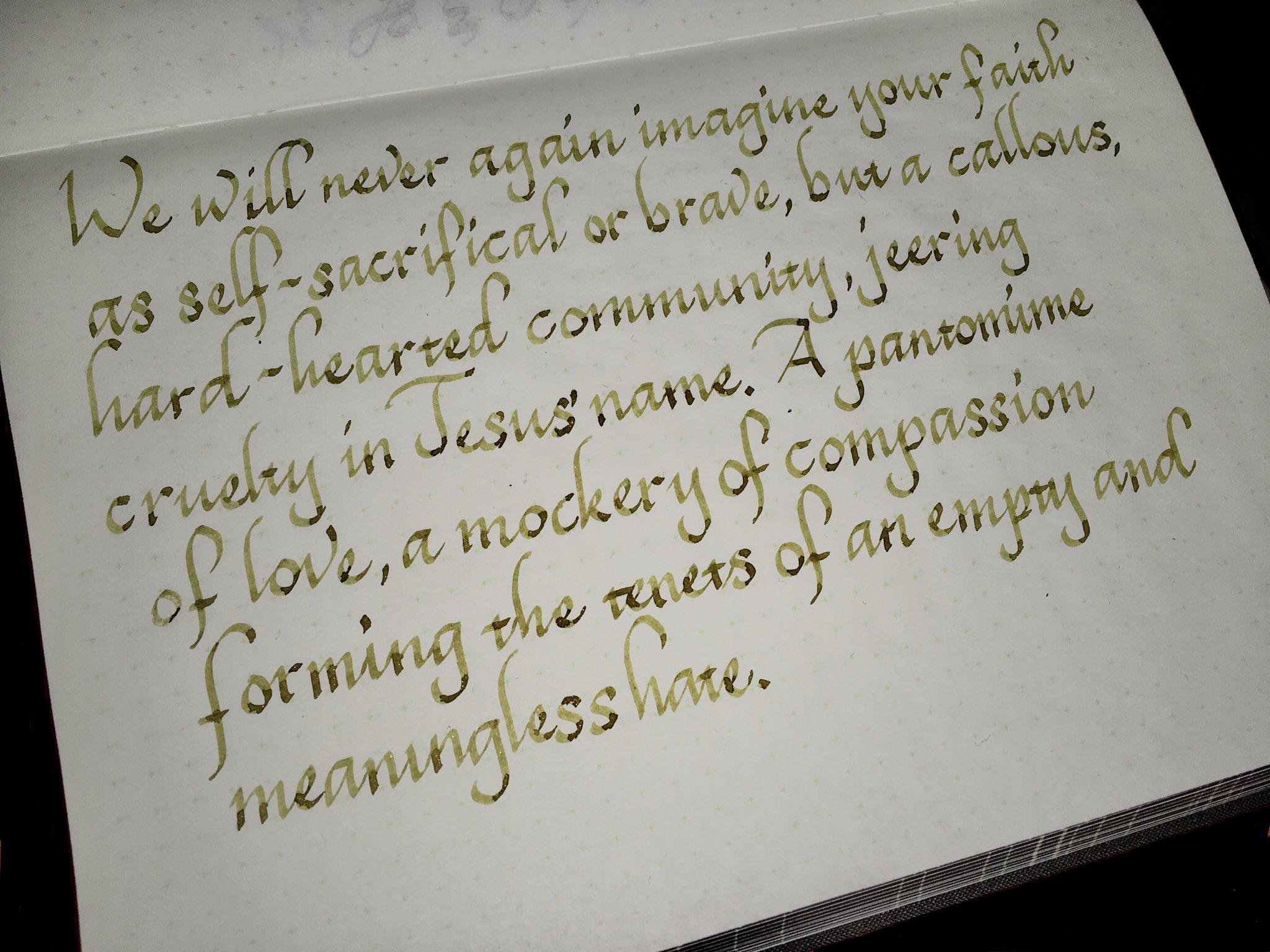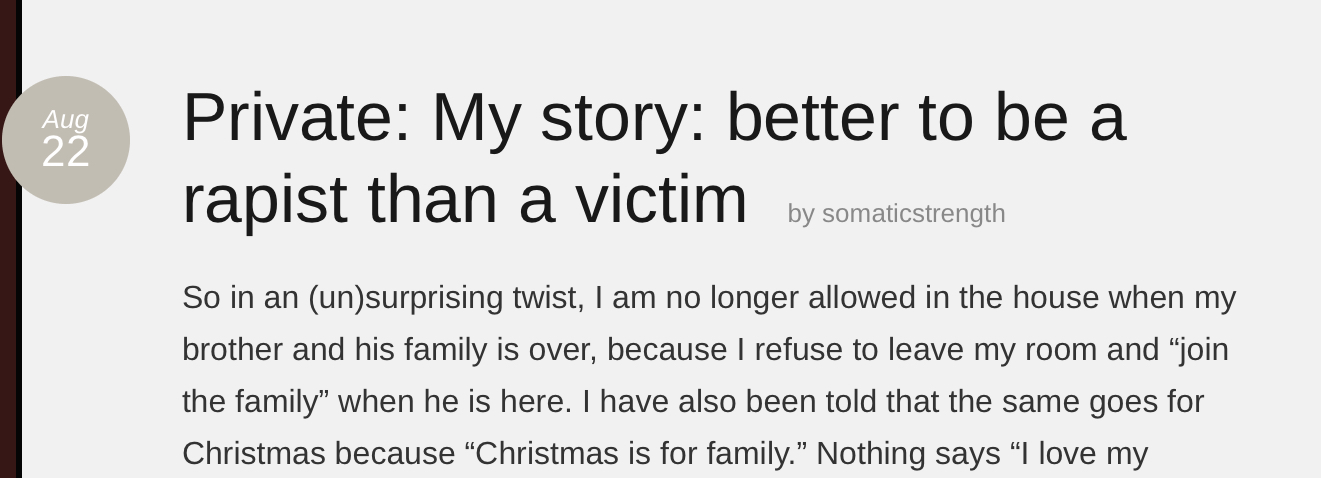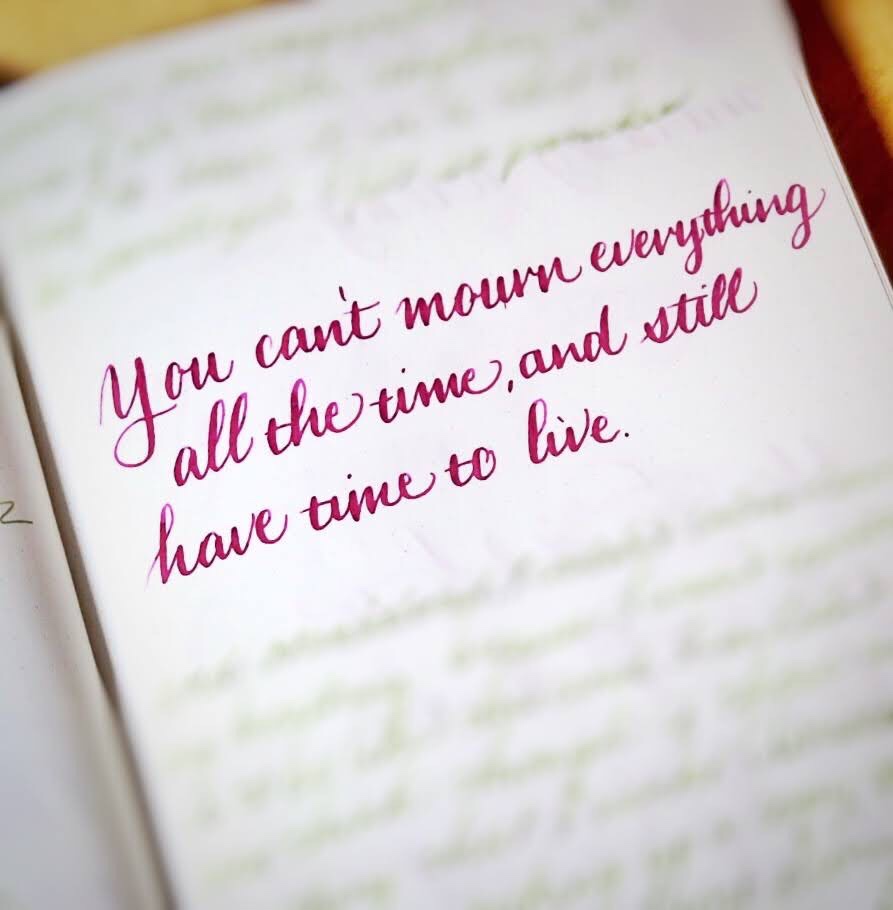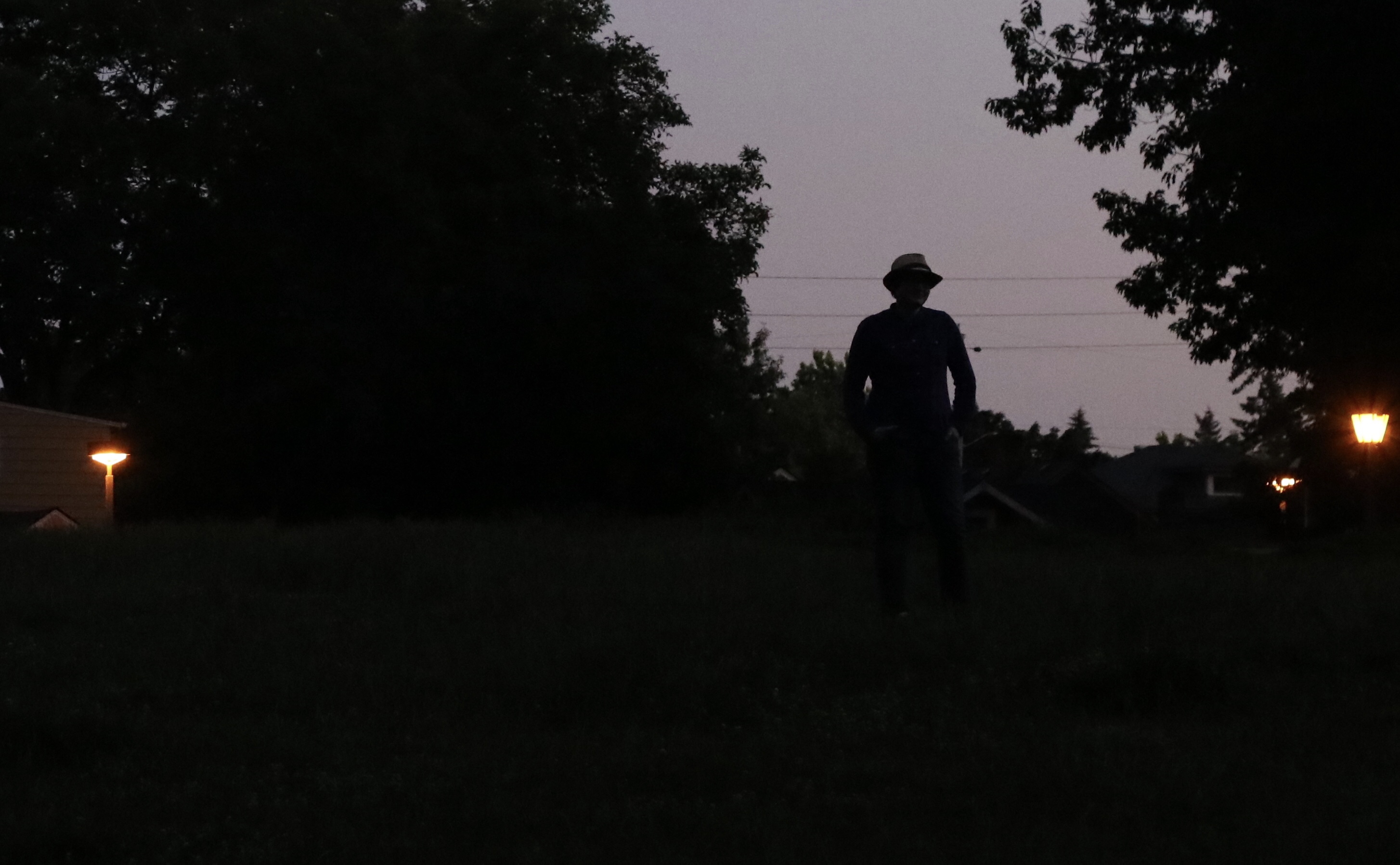We tell a lot of stories about why child molesters do what they do. We say: oh they thought that this was love, they were acting out what was done to them, they’re mentally ill, they couldn’t help themselves. We often link “humanizing” with the idea of figuring out what the sympathetic reason was for why they did something or what was the external force in play. To be human must mean that someone’s motivations for hurting others make sense to us, or make sense within an internal system of logic that is sympathetic, but misguided.
I’ve been thinking about this because I wrote my mother a letter last month. I wrote it to her to tell her a lot of things that had never been spoken, to tell her what, exactly, genuine remorse and contrition from her would look like. One of the things I include in that letter is what happened when my oldest brother—not the one that raped me—molested me. And it’s got me thinking about it.
A few months before he molested me, I told him something my father did to me—or rather, actually, something my father had threatened to do to me. He was the first person, the only person at the time I told anything about my father to, and I told it to him casually because in light of everything else it’d seemed small to me. It was clear when I told it that I had no idea what I had just said to him.
And it was also clear that he did. I had a laugh in my voice: he didn’t. I don’t remember the words specifically, if he said “oh” if he asked, “he did?” I only remember the tone, how shocked he was, how quiet he got. I thought this was normal, but he didn’t. It was very obvious in that moment, he had never known my father had sexually abused me at all. But he was eighteen years old, and he very much knew that what I told him was horrifying, and wrong, and something worthy of the shock on his face.
Until a few months later. When he molested me.
When we offer these justifications, we do so without any sense that predators have an internal narration. They don’t think about the things that they are doing, or going to do, and they don’t think in ways that would look anything like us. In an earlier draft, I realized that we don’t even tell these stories because we believe them ourselves, they are akin to “Why did, so-n-so have to die?” “Oh because only the good die young;” platitudes we offer for comfort over anything else.
These things we say, they’re passive. When we say, “oh he only hurt someone because he was hurt,” we aren’t inferring any sort of step-by-step action. We aren’t standing in the moment in time when someone hurts someone else and seeing exactly how the wheels in their head turn, the mechanisms of the moment played out, that would even make that justification make sense. That’s not its point. That’s not what it’s for.
But that’s what it is to humanize someone. To look at them, as people, as individuals who are fully themselves, not broken traumatized souls, not somehow less thinking or less intelligent than us. They are people who make choices, and they are people who live in the same world that we do.
So let’s look at my brother. I can only give you guessimations; we had that conversation where I told him about my father sometime in early April, and then he molested me sometime that summer. So let’s look at him. Let’s think about what went through his head, without these passive justifications and explanations. How long did it take him, to get over his shock? How long was it before it became something that he thought he could do to me? What would it take, for someone to justify it to themselves?
Because my brother wasn’t some unthinking predator, who thought that the rules of the world were “molesting your sister is okay,” and largely, I don’t think that is a justification that works for most predators. I don’t know absolutely everything, but I don’t imagine there are very many predators who are like, “go on kids, go tell your parents because this is super normal and okey-dokey to do.” So if we want to humanize someone like my brother, we actually have to think of something else: what did they tell themselves, not even to make this “okay” but to justify it? To believe that they have a right to do this to someone? What would have to go into a brother deciding in that moment that he loves his sister so little, he doesn’t care what he does to her?
My brother molested me “spontaneously” but also not; he played off of what was happening that day, kind of like an evangelist might seem to find the perfect keyword in order to launch into whatever script they long memorized to convert you. And before he did it, you could see the deliberation on his face. It took him a second, a moment in time to justify it. I’m being, of course, coy here, because as I’ve written before, I try not to write too much in terms of details. But my brother thought about what he was going to do before he did it.
In my letter to my mother, I reminded her of what happened that day: I ran home. I ran, and ran, and ran, I beat my brother home. I knelt on the floor where my mother was lying, probably reading a book. I wrapped my arms around myself, and I told her what I could, what I had words for, which wasn’t everything.
When my brother got home and my mother asked him if he’d done these things, he denied it, only briefly. Only briefly, because: my mother laughed. And the moment she laughed, you could see the anxiety leave my brother. He didn’t deny it anymore, once he realized: he wasn’t in trouble. Nothing was going to happen here. Sure yeah, he did it, whatever, right?
I think about that a lot. I think about how, before that moment, he said no, no, this hadn’t happened. And then my mother laughed, and it didn’t matter anymore. He wasn’t in trouble, so it didn’t matter. That’s what was important. That’s what mattered. He sat in front of me, on the floor, facing his shaken and hurt sister, and he wasn’t in trouble. So it didn’t matter.
I think it’s important to note as well, my mother did have him apologize to me. It was a small, insignificant apology, the kind of apology fitting something that would make your mother laugh. A screw up apology, a mistake apology, a “sorry I stepped on your toes,” apology. But I think it’s important to note that, if my mother had also not understood what this was, and what it was about, what was he apologizing for to begin with? Either he violated me, or…what? We all were aware, this small circle of people on the floor, my arms wrapped around my body, of what he was apologizing for. It just didn’t matter.
When I was a teenager—so after this—my brother was working. Both he and I have a weakness for soda, so he was often buying cans of Coke, and I was often swiping one here and there, until my mother found out. She was furious with me. She made me sit down, and confess this to him, and apologize. I sobbed with guilt. I felt awful. My mother’s anger made this feel like I had done something horrible to my brother, something I couldn’t come back from. And I cared. I cared that I had done something wrong.
So rather than thinking about what the sympathetic reason is that predators prey on others, I want you to think about what it would be like to live in a world in which you know that your body counts less than things. That you can harm other people by messing with their stuff, but they are allowed to hurt you, because you aren’t even stuff.
I remember once my mother telling me a “funny” story from when I was an infant, and my middle brother was about 6. “He put you up against a light bulb and burned your bottom!” when I looked horrified and asked if this was an accident, she said no. When I asked why, she replied with a flippant, light tone, “I don’t know, he was just curious!” And maybe that could work, maybe, if you’re 6. But the point of that story wasn’t to tell me how horrifying it was. It wasn’t to tell me that my brother learned, swiftly, through his mother’s exclamations and concern, that a baby girl is a human being and that hurting one is wrong.
She’d tell me another story sometimes, too: when I was about two or three, she saw me heading toward the oven, my hands out, and without thinking, grabbed me and said, “hot,” like an expletive, and from then on, when I saw the oven, I would say, seriously, and with fear, “hot.” She didn’t grab her six year old son. She didn’t teach him that hot things burn an infant, and that burning an infant is a harmful thing to do. Her sons did not look with awe, and a respectable terror at the thought of hurting their sister.
No, what my brothers learned in our family was exactly this: you’re just curious. You’re just boys. You’d get in trouble if you were being violent, or sexually abusive, but not if you’re curious, not if you’re playing around, not if you’re just doing what boys do. Look, it’s a girl. A sister. Sisters are for experimenting on, for being curious with, “sister” is an object, a possession, but not like a can of coke, or the furniture we ask you to keep nice, or the stuff we’d make you pay back if you destroyed, but more like…like a girl. It’s a girl.
My parents misogyny, though, may have been what taught my brothers that the consequences would be mitigated, that they had a wide range of things they were allowed to do to me without getting in trouble, but it would be a mistake to leave it at that to say that we teach boys misogyny. That’s just a new passive narration, a new way to slot people into broader contexts without considering who they are, right then in that moment.
No, let’s keep humanizing. We all knew, even as abuse survivors, that hurting other people is wrong. Remember, I was the person that did not know the significance of what I told my brother.
That was for two reasons: one, it was normalized for me, and normalized specifically along these lines of gender. So, I knew that hurting other people was wrong, I just didn’t know that hurting me was wrong. I assumed the average girl I met was different, special, good, better than me, and I was jealous because they didn’t deserve to be hurt the way I did. The second thing was, I was child. My brothers understood sexuality in a way I did not. My brothers were not confused about what hurting other people was, or what it looked like. They knew what they were doing was wrong. They just didn’t care.
Misogyny doesn’t have to be, and isn’t always, a conscious choice, sure, but hurting someone is. You might not know that you’re assuming sexist and bigoted ideas about women, but you definitely know what actively hurting someone is. And when misogyny is the weapon, when it is the tool that you reach for to hurt someone, you first have to decide that this is what you want to do.
Because, the problem here isn’t just that my brother molested me. It’s actually everything else as well; it’s that he was the only person I trusted to tell him something my father had threatened to do to me, it’s because he was horrified by it, it’s because he still molested me not long after, in a mirror of what my father threatened to do, and then did more, it’s because his only concern was whether he got in trouble, it’s because my body and reaction didn’t matter to him, it’s because none of this mattered forever and ever, amen. No one has ever reminded my brother of this day ever again.
How do we account for the misogynistic men who don’t sexually abuse their sister? Who’ve never hit or raped a woman, but are still steeped in our misogynistic society, and have no desire to change it? Simple. The weapons are on the ground but they don’t want those.
I’ve never asked my family to not be hurt or messed up by the abuse. I have never demanded they not be affected by the things that they’ve gone through. I’ve asked them to not commit—and not condone—molestation. Rape. Sexual abuse. To care about me at least as much as they care about themselves and their own well-being. To not be cruel, and callous, and selfish. This is not the same thing as being traumatized. And if we link the two, if we say that every bit of violence, and cruelty, and sexual abuse is solely because of circumstances beyond a predators control, we deny the very agency of them, we turn them into a symbolic figure in a theory, not a human being. And we make victims themselves stories too, characters slotted into a narrative we decide is interchangeable across every instance of sexual violence. It’s a romanticized notion of violence, a poetic telling that has very little to do with individual predators and victims themselves. We are nameless, personless, we don’t have relationships with each other, we don’t have knowledge, power, or reasoning skills. And I’m through with those stories.
So I’m stripping off the obscuring veil of platitudes and big, broad, sweeping generalizations we give about abuse and about predators, about fathers and brothers and their misogyny, about mothers, and their misogyny, and instead I am putting my family in front of you. I am telling you that they are real people, that I know. That I lived with. That looked at me as though I was nothing. That violated me as though I was nothing. That excused it as though I was nothing. And they did it, they did it all…
because they wanted to.

 This blog for awhile, had a section called “my story” and in it contained anything related to my memories. I told the main story of how my brother raped me. I told the broken pieces of story about my father, and my mother. I blogged about the present moment, because I wrote these things still living at home.
This blog for awhile, had a section called “my story” and in it contained anything related to my memories. I told the main story of how my brother raped me. I told the broken pieces of story about my father, and my mother. I blogged about the present moment, because I wrote these things still living at home. I wrote in my
I wrote in my 